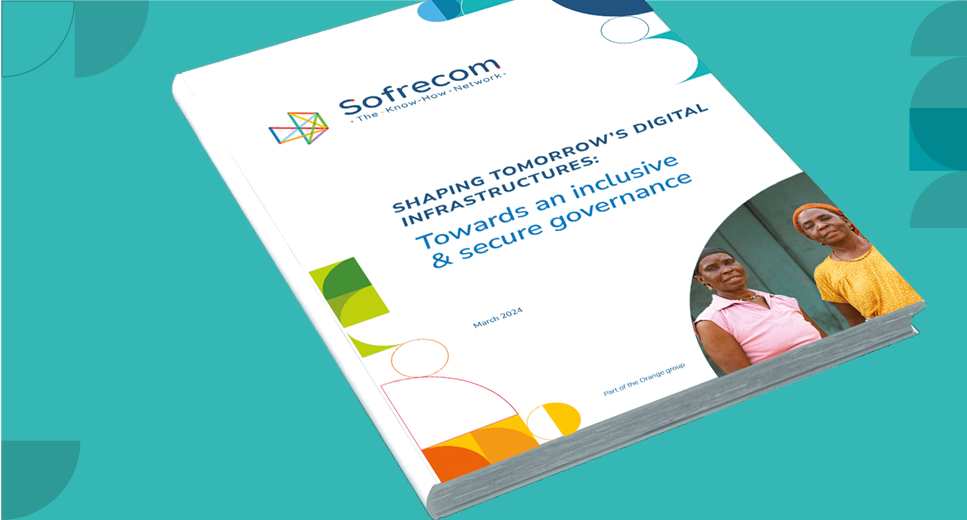
The SVP not only champions the advancement of the digital economy and e-commerce sector but also places a special focus on promoting financial inclusion, especially among women and the youth. By prioritizing these marginalized groups, the program aims to uplift the well-being of rural populations while catalyzing economic development in the region

What is the smart villages for rural growth and digital inclusion program?
The Smart Villages for Rural Growth and Digital Inclusion Program (SVP) represents a pioneering governmental initiative by the Republic of Niger. Its core objective is to enhance access to high-speed internet and foster the adoption of digital financial services within rural communities. Centered around the utilization of mobile money platforms, the SVP not only champions the advancement of the digital economy and e-commerce sector but also places a special focus on promoting financial inclusion, especially among women and the youth. By prioritizing these marginalized groups, the program aims to uplift the well-being of rural populations while catalyzing economic development in the region.
What is the anticipated impact of this program and its initial outcomes?
In Niger, approximately 6 000 localities currently lack any form of connectivity. The Smart Villages for Rural Growth and Digital Inclusion Program (SVP) seeks to address this digital divide by aiming to provide connectivity to these underserved regions. In its initial phase, the SVP is targeting 2 600 villages, with over 400 villages already benefiting from high-speed internet access. Beyond merely providing connectivity, the SVP has a broader
objective— promoting financial inclusion among rural populations.
To achieve this, the program has established digital service centers where local communities can receive comprehensive training in both financial literacy and digital skills. These centers aim to empower individuals, particularly women, enabling them to not only navigate digital platforms confidently but also leverage mobile money services effectively.
The SVP has already made significant strides in its outreach efforts, having trained over 40,000 ndividuals, 80% of which being women across the 113 centers established. These efforts extend beyond mere education; they represent a pathway to financial independence for many rural women, facilitating their engagement in income-generating activities and enhancing their ability to manage financial transactions efficiently on a day-to-day basis.
Furthermore, the SVP is not limited to localized interventions; it endeavors to transform the entire financial ecosystem of Niger. By promoting merchant payments, nurturing the growth of local fintech enterprises, and advocating for regulatory reforms conducive to digital finance, the SVP seeks to create an environment where digital financial services can flourish and contribute significantly to the nation’s economic development.
What role does identification play in fostering social inclusion?
The inclusion of populations encompasses broader access to financial services. Whether it’s opening an account at a financial institution, securing a loan to expand a business, or accessing various services, individuals must first establish their identity. Identification serves as the cornerstone, allowing institutions to attribute transactions to specific individuals— crucial not only for antimoney laundering (AML) and counter-terrorism financing (CFT) efforts but also for assessing an individual’s credit worthiness when seeking financial assistance. Therefore, identification plays a pivotal role in promoting social inclusion by facilitating access to essential financial services for all members of society.
What are the challenges associated with population identification in Niger?
In Niger, where approximately 83% of the population resides in rural areas, accessing formal identification poses significant challenges. In these remote regions, the process of registering births is often hindered by the considerable distance to public agencies, leading to a widespread lack of birth certificates among Nigeriens. This scarcity of official identification documents presents a major obstacle to accessing financial services, as individuals require valid IDs to open bank accounts or obtain credit.
Moreover, even for those who manage to obtain a mobile money account, transaction limits are often imposed due to insufficient identification. To address this issue, sponsorship programs have been implemented in collaboration with village chiefs to facilitate the acquisition of SIM cards. However, while these initiatives aim to increase accessibility, they inadvertently complicate the process of linking accounts to individual users for mobile money transactions.
How is the SVP addressing this lack of identification?
As part of a project which aims to create a digital platform to provide agricultural organizations with access to financial services that are otherwise unavailable through traditional channels, the SVP has launched an extensive field census campaign to populate a digital registry. Out of 11,500 organizations surveyed, 4,200 have already been identified, along with their participants. This on-the-ground census initiative serves as a foundational step before the rollout of the regional Unique Identification Project (WURI), funded by the World Bank, which aims to establish a robust identification system and provide all Nigeriens with a reliable identity.






